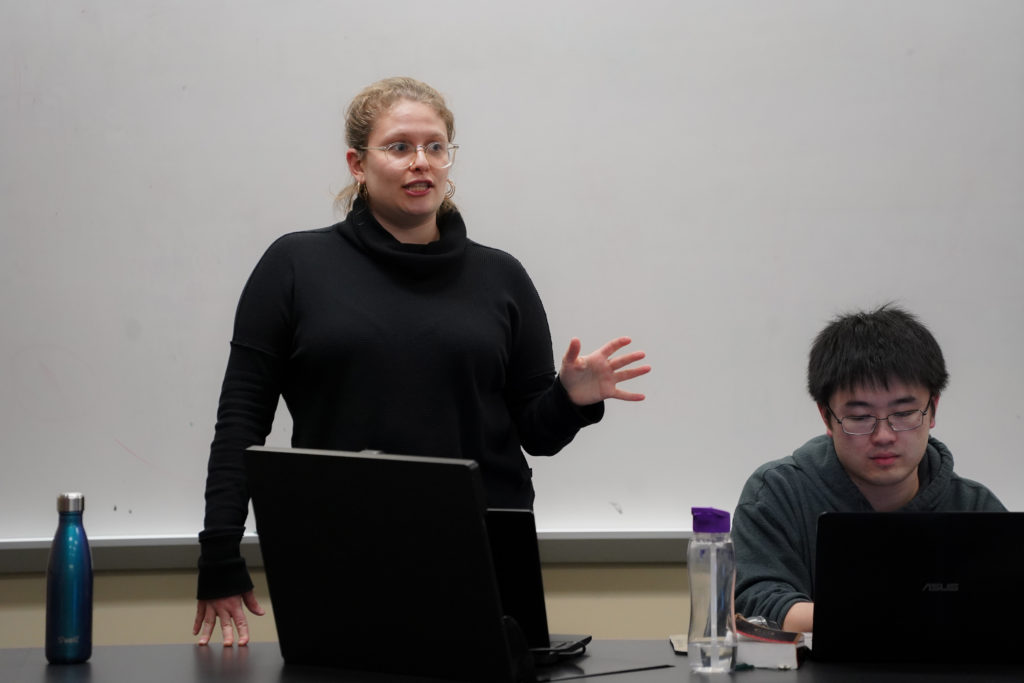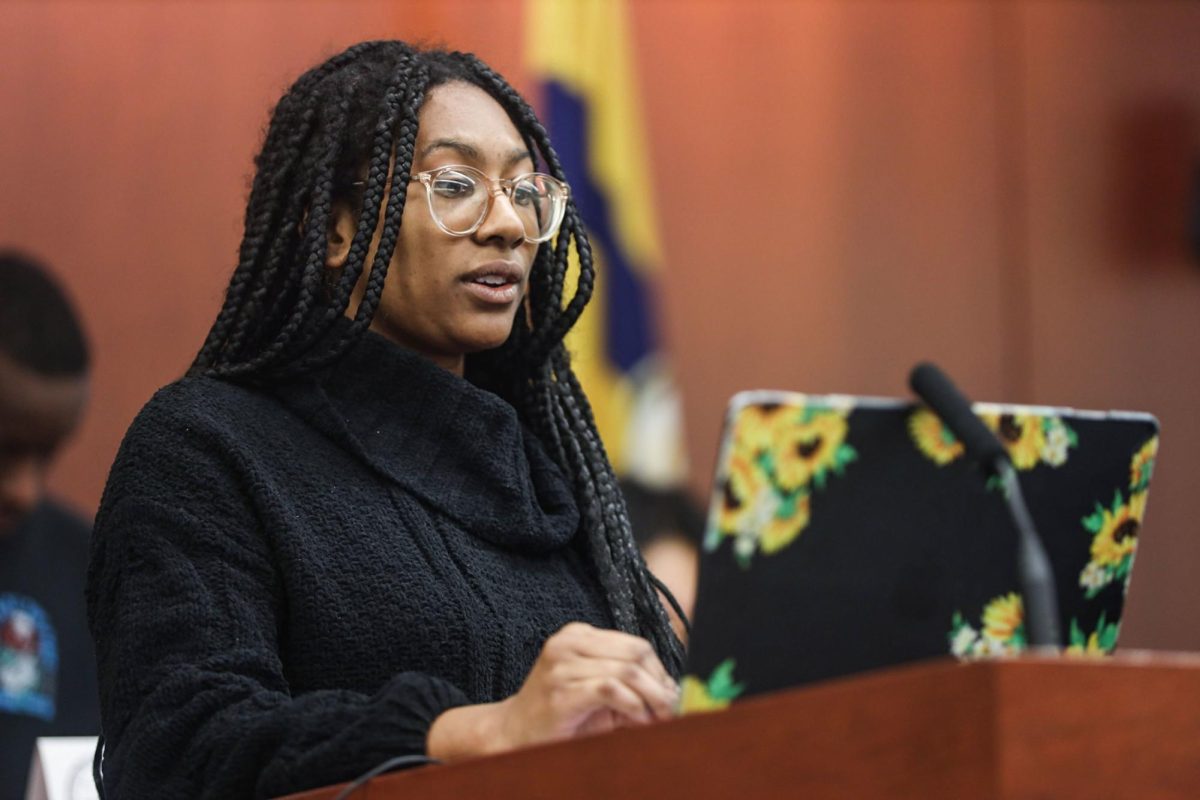Results of the Student Bar Association’s spring elections were announced at the body’s meeting Tuesday.
Director of Elections Annie Abrams announced that Jackie Fisher, the current vice president of first-year students, and SBA Sen. Jendaya Bell were elected as president and executive vice president, respectively, for the next academic year’s session of the SBA. Senators also approved a bill at the meeting to clarify the role of the judiciary and its relationship with the senate.
Fisher defeated Mariah Henry and Jordan Jean, the chair of the senate’s finance committee, and Bell defeated Lexi Mayer and Yun-Da Tsai, the secretary and president pro tempore of the senate. Bell faced Mayer in a runoff election after no candidate received enough votes to win outright on the first ballot.
“I know a lot of people talked to their constituents and made sure they knew that it was voting day,” she said. “We had our full committee getting the word out.”
Abrams said the voter turnout for the election was the highest in nearly a decade.
The senate voted to unredact a section of the last meeting that was closed to the public. The portion was related to the senate’s decision to provide about $1,000 to the law school’s Border Immersion Program instead of the more than $5,000 that was originally requested.
“I think we made a very long decision,” SBA Sen. Andrew Trinker said. “I don’t think there’s any reason we should keep the entire debate redacted.”
SBA Sen. Courtney Dickson said one of the purposes of having a closed session is to have a “more candid” conversation about whether or not to fund student organizations without upsetting members of the organization.
“I think that if we have this debate every time, it will discourage going into future closed sessions, and we’ll just get rid of the freedom of speech senators feel like they have in such sessions,” she said.
Bell, who was elected as next year’s executive vice president, said constituents should be informed about how the body makes decisions.
“I feel in the name of transparency that it should be unredacted,” she said.
The senate passed the Supreme Court Authority Recognition Act to give the SBA’s judicial branch more discretion when the senate requests the SBA Supreme Court offer an opinion on an issue. SBA Sen. Ben Smith said the court was previously required to submit all concurring and dissenting opinions, but the bill makes their submission optional.
“It takes the burden off the court,” Smith said.
The senate closed their meeting to discuss the bill, which lasted about 15 minutes, and reopened the session and approved the bill by a voice vote.








